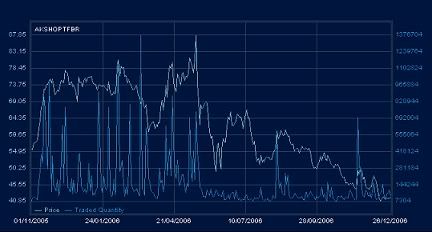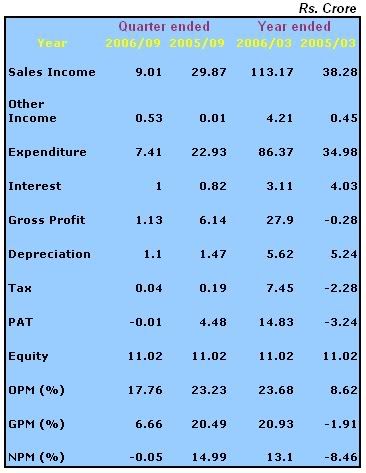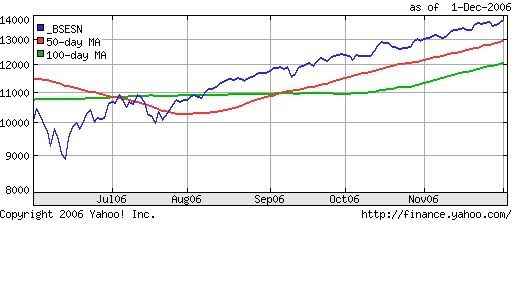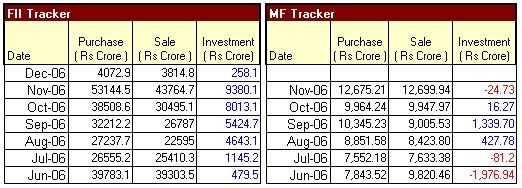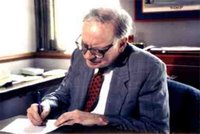 There have been a lot of Investment guru’s around the world, but one name that is cynosure of all eyes and is most respected for his investing sense is, undoubtedly, Warren Buffett. Though I do not cover such articles on my blog, I thought it would be a good idea to occasionally post few such posts featuring the great investors and their ideologies. And when it comes to investing , who should we talk of first, other than warren buffett, who is the Second richest person in the world and he did it all through investing. We will cover Benjamin Graham, Charlie, David and of course India’s investing sensation Rakesh Jhunjhunwala among others in a series of posts.
There have been a lot of Investment guru’s around the world, but one name that is cynosure of all eyes and is most respected for his investing sense is, undoubtedly, Warren Buffett. Though I do not cover such articles on my blog, I thought it would be a good idea to occasionally post few such posts featuring the great investors and their ideologies. And when it comes to investing , who should we talk of first, other than warren buffett, who is the Second richest person in the world and he did it all through investing. We will cover Benjamin Graham, Charlie, David and of course India’s investing sensation Rakesh Jhunjhunwala among others in a series of posts.The Oracle of Omaha – Investing since Childhood
About Buffett’s Personal Life
Warren Edward Buffett was born on August 30, 1930. The only boy, he was the second of three children, and displayed an amazing aptitude for both money and business at a very early age. His father was a stock broker turned Congressman.
In 1947, a seventeen year old Warren Buffett graduated from High School. It was never his intention to go to college; he had already made $5,000 delivering newspapers (this is equal to $42,610.81 in 2000). His father had other plans, and urged his son to attend the Wharton Business School at the University of Pennsylvania. Buffett stayed two years, complaining that he knew more than his professors. When Howard was defeated in the 1948 Congressional race, Warren returned home to Omaha and transferred to the University of Nebraska-Lincoln. Working full-time, he managed to graduate in only three years.
Buffett married Susan Thompson in 1952. They had three children, Susie, Howard, and Peter. The couple began living separately in 1977, though they remained married until her death in July 2004. His daughter Susie lives in Omaha and does charitable work through the Susan A. Buffett Foundation and as a national board member of Girls, Inc. On his 76th birthday Buffett married his longtime companion, Astrid Menks, who had lived with him since his wife's departure
An Investor by birth
Warren showed an Investing aptitude since his early childhood. He was a born Investor though he refined his Investing sense under stalwarts like Benjamin Graham.
As a boy, irrespective of his family background, he delivered newspapers to make extra money and this probably sparked his interest in the media where he has made several successful investments including the Washington Post Company, a stock that has made him a lot of money and which he vows never to sell.
At the age of 13, Buffett filed his first income tax return, deducting his bicycle as a work expense. At the age of 15, Buffett and a friend spent $25 to purchase a used pinball machine, which they placed in a barber shop. Within months, they owned three machines in different locations.
Association with Benjamin
Buffett enrolled at Columbia Business School after learning that Benjamin Graham and David Dodd, two well-known securities analysts, taught there. Buffett graduated and wanted to work on Wall Street.
Buffett offered to work for Graham for free but Graham refused. He purchased a Texaco gas station as a side investment, but that venture did not work out as well as he had hoped. Meanwhile, he worked as a stockbroker. He finally got the job with Benjamin Graham’s firm and, as he generously acknowledges, learned a lot about stock investment from The Master.
Graham retired and folded up his partnership. Since leaving college six years earlier, Buffett's personal savings grew from $9,800 to over $140,000. He returned home to Omaha and created Buffett Associates, Ltd., an investment partnership.
Berkshire Hathaway
In 1962, Buffett discovered a textile manufacturing firm, Berkshire Hathaway, that was selling for under $8 per share. Through his partnership, Buffett eventually purchased 49% of the outstanding shares. Buffett maintained BH's core business of textile milling, but by 1967 was expanding into the insurance industry and other investments.
Berkshire first ventured into the insurance business with the purchase of National Indemnity Company. In the late 1970s, Berkshire acquired an equity stake in the Government Employees Insurance Company (GEICO), which forms the core of its insurance operations today (and is a major source of capital for BH's other investments). In 1985, the last textile operations (BH's historic core) were shut down.
Berkshire Hathaway , a massive holding company headquartered in Omaha, Nebraska, USA, that oversees and manages a number of subsidiary companies. Berkshire Hathaway's core business is insurance, including property and casualty insurance, reinsurance and specialty nonstandard insurance. The Company averaged a phenomenal 25%+ annual return to its shareholders for the last 25 years while employing large amounts of capital and minimal debt.
Warren Buffet’s Value Investing principles
The business the company is in should be simple and understandable.
The firm should have a consistent operating history, manifested in operating earnings that are stable and predictable.
The firm should be in a business with favorable long term prospects.
The managers of the company should be candid. As evidenced by the way he treated his own stockholders, Buffett put a premium on managers he trusted. The managers of the company should be leaders and not followers.
The company should have a high return on equity. Buffett emphasizes return on equity (ROE), a key measure of a company's profitability. He prefers to invest in companies where he can confidently forecast future ROEs at least 10 years out. He is particularly fond of firms that don't require a lot of capital, as they tend to produce much higher returns on equity.
Consistently Strong Free Cash Flow. Buffett also seeks companies with significant free cash flow. Always mindful of the risks associated with investing, he ensures that his companies have plenty of money left over to invest in their growth after they have paid the bills.
Limited Debt. In the 1990s, Buffett bought insurers Geico and General Re because he liked how the companies limited and managed their debt.Buffett also likes the "float" that insurance companies offer. Policyholders pay premiums up front, but claims are paid out later -- providing insurance companies with a steady stream of low-cost cash to play with. Until policyholders collect on their policies or claims, the company can invest those billions in stocks/bonds or other areas, and who better to invest that money than Buffett himself?
Margin of Safety. If you understood a business perfectly and the future of the business, you would need very little in the way of a margin of safety. So, the more vulnerable the business is, assuming you still want to invest in it, the larger margin of safety you'd need.
